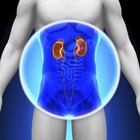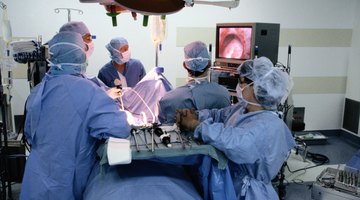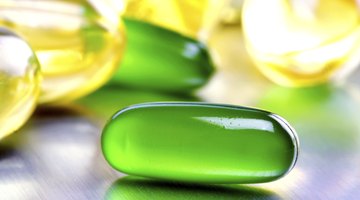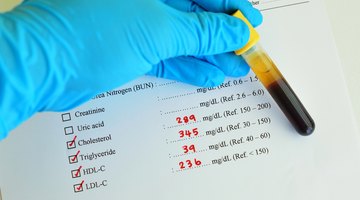Causes of a High Level of Alkaline Phosphatase in Blood
Alkaline phosphatase is an enzyme found throughout the body. However, it tends to be most concentrated in the liver, the bile ducts, bones and placenta. Diseases that damage and destroy the cells of these organs lead to the release of alkaline phosphatase into the blood, which raises the blood level of alkaline phosphatase.
Gastrointestinal Disease
Alkaline phosphatase is released into the blood in some diseases of the gastrointestinal tract, according to "Harrison's Principles of Internal Medicine." It is found in the biliary system which is responsible for taking bile from the liver to the intestines to aid in digestion. Diseases of the gallbladder, such as cholecystitis, or inflammation of the gallbladder, or gallstones, can raise alkaline phosphatase. Alkaline phosphatase is also found in the intestines. A perforated, or punctured, bowel can increase levels of the enzyme in the blood. Finally, liver disease such as tumors or alcoholic liver disease increases blood levels.
Bone Disease

Causes for an Enlarged Kidney
Learn More
Bone also contains high levels of alkaline phosphatase. Any disease that damages bone can release alkaline phosphatase into the blood. Examples include primary bone cancer and metastatic bone cancers, a broken bone or osteoporosis.
Infections
Infections can also lead to increased alkaline phosphatase. Examples are localized infections, such as infections of the gallbladder in cholecystitis, or infections of bone as in osteomyelitis. Large scale infections can also increase the enzyme. Sepsis is a condition of widespread infection and an aggressive immune response. The infection and the immune response damage tissues and release cellular enzymes such as alkaline phosphatase.
Medications

Cinnamon and Liver Damage
Learn More
Certain medications are associated with increased levels of alkaline phosphatase. These include estrogens, as found in oral contraceptive pills or hormone replacement therapy, and some antibiotics such as erythromycin.
Related Articles
- "Harrison's Principles of Internal Medicine"; Anthony S. Fauci, et al.; 2008
- "Henry's Clinical Diagnosis and Management by Laboratory Methods"; Richard A. McPherson and Matthew R. Pincus; 2006











